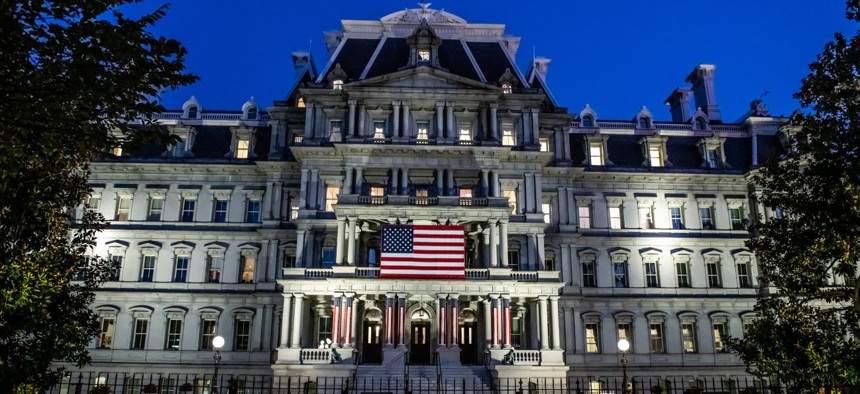
The Office of Information and Regulatory Affairs within OMB issued the guidance. Melodie Yvonne / Getty Images
New guidance will help agencies get underserved communities more involved in the regulatory process
The Biden administration is working to ensure that people who are affected have a chance to weigh in as rules are being developed.
The Biden administration this week released guidance to help agencies get the public more involved in the regulatory process, especially members of underserved communities who historically might not have weighed in on proposals that could affect them.
In a July 19 memo to agency heads, Richard Revesz, administrator of the Office of Information and Regulatory Affairs, laid out why greater participation in the rule-making process is important and considerations for agencies as they determine what form of engagement may be best for the communities they are attempting to reach. The memo also encouraged agencies to use the regulatory agenda process to give the public a heads up about regulations that are being developed, to be more proactive in their outreach and share what they’ve learned to help develop best practices, and to let those who commented on proposals know how their feedback ended up being used.
“It is crucial for federal agencies to craft regulatory proposals with input from affected members of the public,” Revesz wrote. “Public involvement in the development of regulations can lead to more effective and equitable regulations; greater trust in government and democratic accountability; and increased public understanding of the regulatory process.”
The new guidance comes as part of the Biden administration’s efforts to modernize the regulatory process in keeping with Executive Order 14094, released in April. It also fits in with the administration’s efforts to advance equity.
Agencies invite the public to comment on most major regulations, but despite the theoretically open process they often do not hear from the individuals and smaller organizations that might be affected, particularly those in underserved communities, said Alexander Hertel-Fernandez, a senior equity fellow at OIRA, on Thursday during a webinar on the new guidance and broader public engagement efforts.
The new guidance reflects feedback the regulatory office received in four listening sessions and two public comment periods from October 2022 through March, designed to help understand how citizens “currently engage in the regulatory process, identify barriers or obstacles encountered by different segments of the public, receive suggestions for how agencies can better reach members of the public and incorporate public perspectives into the regulatory process, and solicit feedback on draft recommendations,” Revesz wrote. The regulatory office will follow up with another session to gather feedback on the guidance itself, in about a year.
Suggestions received during the sessions and incorporated into the guidance included using plain, jargon-free language in draft regulations and providing more information on the kinds of information agencies would like from the public during the rule-making process, creating explainers and guides on the steps in the regulatory process and where the public might fit in that organizations could share with their members, and encouraging agencies to use trusted intermediaries such as nonprofit organizations to reach out to affected individuals and tell them about opportunities for engagement with the government.
Groups also asked the regulatory office to urge agencies to translate regulatory proposals that might affect large populations of non-English speakers, and to use social media, local news outlets and other less traditional means of publicizing comment periods in addition to the Federal Register, Hertel-Fernandez said.
Agencies will implement the guidance at their own pace, Revesz noted in the memo. Some are already using the best practices outlined, while they will be new to others.
The consumer advocacy group Public Citizen applauded the administration’s efforts to promote greater engagement and the new guidance.
“These reforms will level the playing field by ensuring that government agencies are listening to consumers, workers, underserved and fenceline communities, and regular people – not just corporate lobbyists who want to weaken, delay, and block new public protections,” said Lisa Gilbert, the group’s executive vice president, in a statement.







